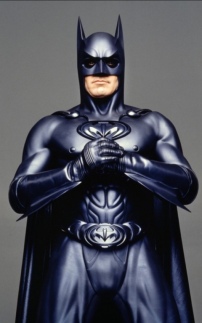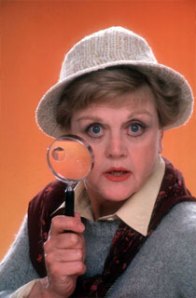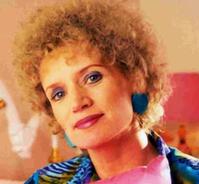 Growing up, Bruce Wayne was an attractive young man. With the frame of a sprinter, and a chiseled jawline that would make a Romney son jealous, Wayne couldn’t help but draw the attention of both females and males alike.
Growing up, Bruce Wayne was an attractive young man. With the frame of a sprinter, and a chiseled jawline that would make a Romney son jealous, Wayne couldn’t help but draw the attention of both females and males alike.
And secretly he loved it. He loved it when the girl at the counter would bat her eyelids at him, or when the man in the stall next to him would take a sideways glance that pushed the boundaries of acceptable male heterosexual urinal relations.
Sometimes, long after Alfred had turned in for the night, Bruce would stand in front of his full-length gilded mirror and stare at himself for hours: neglecting to ask introspective questions about the death of his parents, instead distracted by the raw power and rippled lines of his hard, male physique.
He soon realised that good looks and fortune couldn’t bring happiness, beginning a lifelong quest for answers. The obvious place to start was the death of his parents, reflecting his belief that the family unit was key to a stable society.
Through his investigations, he began to build a political consciousness. The state had failed his parents and now it was failing millions of other Americans by squandering money on inept policing and failed social policies that were destroying traditional notions of the family. And how was Gotham’s over-inflated bureaucracy paying for this? By saddling successful businesses like Wayne Enterprises with an ever-growing list of company taxes.
He decided that the only way to fix things was to do it himself. So he stitched together his first batsuit and donated to the Gotham City Republicans, beginning a relationship with the G.O.P that would last to this day.
However, while Wayne was happy to influence politics indirectly, he never contemplated running himself. As an introvert, the idea terrified him – too many unanswered questions remained about his identity to risk the day-in-day-out scrutiny of the 24-hour news cycle.
Hints of the truth would surface over time – through his alter-ego Batman. As Batman grew to love the feel of rubber against his skin, so did Wayne. As Batman began mentoring a young Robin, Wayne found himself appreciating more and more the youthful vitality and teenage bravado that the boy brought to his life.
But instead of embracing the truth, Wayne ran from it.
He poured his attention into Wayne Enterprises and strengthened his ties to extremist elements of the Republican Party. He would host lavish fundraisers, espousing homophobic diatribes to any Party powerbrokers who would listen. Later, as the Dark Knight, he would don his batsuit and vent his frustrations through ugly acts of violence towards downtrodden “criminals” before returning home to drown his sorrows.
This year Wayne Enterprises’ Super PAC has been campaigning strongly for Rick Santorum, under directions from Bruce Wayne himself, who sees the Pennsylvanian as the best hope of advancing his pro-family, anti-gay agenda.
But even if Santorum was to secure the Republican nomination – and eventually the presidency – deep down Wayne knows that his sense of unease would linger. For no matter how many gay marriages Santorum prevents, or how many criminals Batman apprehends, the true cause of Bruce Wayne’s unhappiness remains unresolved…



